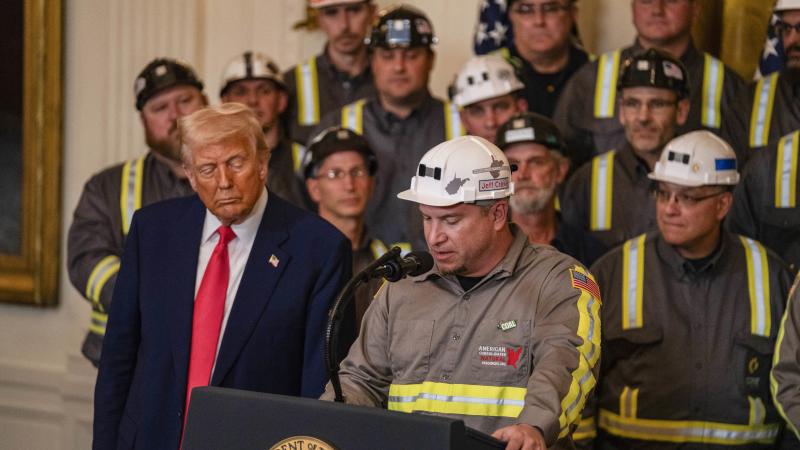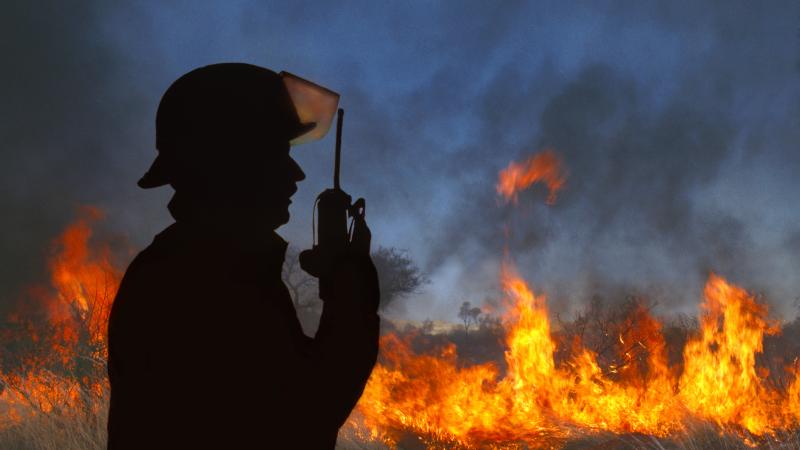Media shows no scrutiny of study claiming oil companies made the world $28 trillion poorer
These articles made no mention that the methodology used in the study that spawned considerable coverage was developed for the purpose of supporting climate lawsuits against oil companies. The study’s authors also worked with a lawyer who works at Sher Edling, a law firm that stands to profit from climate litigation.
A new study published in the journal Nature concludes that the world would be $28 trillion richer if we stopped using fossil fuels. Were it not for the “extreme heat” fossil fuel companies are causing, the researchers from Dartmouth College explain, we’d have a much wealthier planet.
With such dramatic conclusions, multiple outlets in the legacy media breathlessly reported the findings. A report in CBS News quotes celebrity climate scientist Michael Mann supporting this type of research. A D.C. court recently sanctioned Mann in his libel suit against two bloggers, saying he “acted in bad faith when they presented erroneous evidence and made false representations to the jury and the Court.” CBS News' report makes no mention of this.
“Extreme weather events continue disrupt [sic] communities and strain finances,” a report on the study in The New York Times states. The lead paragraph in a report in the Associated Press compares using fossil fuels, which are the basis for over 80% of the globe's energy and thousands of consumer products, to using tobacco. The study, Associated Press climate reporter Seth Borenstein claims, will “make it easier for people and governments to hold companies financially accountable.”
These articles fail to mention that the methodology used in the study wasn’t developed by impartial researchers dedicated to following science. The methodology, it turns out, was developed by anti-fossil fuel activists whose aim is to support climate lawsuits against oil companies. The study’s authors also consulted with a lawyer who works at a law firm that stands to profit from climate litigation.
"Attribution science" designed for lawsuits but robust
The study’s conclusion is based on what’s called "attribution science," which was developed by a group of climate activists specifically to help advance litigation against oil companies. One of the leading organizations driving this approach is the World Weather Attribution (WWA) initiative. In an article about the field, its co-founder, climatologist Friederike Otto told Politico in 2019, “Unlike every other branch of climate science or science in general, event attribution was actually originally suggested with the courts in mind.”
Otto explained in a Concordia University interview last year that this field of science is part of a legal strategy to arm plaintiffs in lawsuits against oil companies with a scientific basis for their complaints. The Associated Press article quotes Otto, who didn’t take part in the Dartmouth study, stating that “all the methods they [the Dartmouth researchers] use are robust.” The reporter then characterized the WWA as a “collection of scientists who try rapid attribution studies to see if specific extreme weather events are worsened by climate change.”
In 2022, the Associated Press received $8 million in funding from anti-fossil fuel advocacy groups, including the William and Flora Hewlett Foundation, the Howard Hughes Medical Institute, Quadrivium, the Rockefeller Foundation and the Walton Family Foundation. The outlet said that these are just "philanthropy partners,” and it maintains editorial control over its content.
White men need not apply
In an interview in a British feminist publication Womanthology, Otto argued that it’s important to have women doing climate research: “Who ‘does science’ is a hugely important issue, so if climate change is worked on exclusively by white men, it means that the questions asked are those that are relevant to white men."
"But people most affected by climate change are not white men" he said, "so if all these other people are effectively excluded from the scientific process, the problems we have to face in climate change will not be properly addressed and you will not find solutions for how to best transform a society,” Otto said.
Otto didn’t explain how extreme weather events — whether they’re impacted by carbon dioxide emissions or not — specifically seek out people according to their gender and race.
Attempts to distribute blame company by company
On his “The Honest Broker” Substack, Dr. Roger Pielke, Jr., retired professor of environmental science at the University of Colorado-Boulder, explained that the Intergovernmental Panel on Climate Change, a United Nations consortium of the world’s leading climate researchers, disputes that single events can be attributed to climate change.
“Scientists cannot answer directly whether a particular event was caused by climate change, as extremes do occur naturally, and any specific weather and climate event is the result of a complex mix of human and natural factors. Instead, scientists quantify the relative importance of human and natural influences on the magnitude and/or probability of specific extreme weather events,” the IPCC states in its AR6 report.
The Dartmouth study attempts to distribute blame on how specific oil companies have allegedly contributed to the claimed $28 trillion in damages globally. According to the study, Chevron caused as much as $3.6 trillion in “heat-related losses” between 1991 and 2020. ExxonMobil is, according to the study, responsible for $1.91 trillion and adds that Saudi Aramco is responsible for $2.05 trillion.
The lead researcher of the Dartmouth study, Dr. Christopher Callahan, told Just the News that it is an “unfortunate misreading of the IPCC’s conclusion.” “Our research does not argue that a given heat wave was entirely caused by an emitter, but that emitters have increased the intensity of a heat wave that may have occurred naturally,” he said.
Callahan noted that the IPCC also states that “scientists can now quantify the contribution of human influences to the magnitude and probability of many extreme events,” and that “attributable increases in probability and magnitude have been identified consistently for many hot extremes.”
“Our findings are entirely in line with this consensus,” Callahan said.
Tactical science
In his article, Pielke wrote that attribution science was developed as a response to the failure of the IPCC’s conventional approach to reach a high degree of confidence with detection and attribution of trends in the frequency and intensity of most types of extreme weather events. Pielke argues that climate change due to human activities does pose a risk and shouldn’t be ignored. However, he wrote, “The importance of climate change as an issue does not mean that we can or should ignore scientific integrity.”
Pielke calls attribution science a form of “tactical science,” which is research done specifically in service to political and legal aims. He said such research is not necessarily bad research, but because it serves an agenda, it deserves greater scrutiny, especially by journalists reporting on these studies and especially those studies that aren’t peer-reviewed.
For example, the WWA produced a study claiming that last year's deadly Hurricane Helene was made 500 times more likely due to carbon dioxide emissions. CNN reported on the study but never mentioned it wasn’t peer-reviewed. The Dartmouth study was peer-reviewed.
Feedback from interested parties
The researchers of the Dartmouth study consulted with a lawyer from a firm representing plaintiffs who are suing oil companies. The acknowledgments list Michael Burger, a lawyer of counsel at Sher Edling. The firm is heavily involved in litigation against oil companies, particularly lawsuits that blame them for damages stemming from weather-related events.
The firm has been accused of being part of a dark money campaign, The Washington Free Beacon reported, and it was the focus of a Congressional probe in 2023, seeking more information on the “wealthy liberals” who are funding the lawsuits “aimed at bankrupting oil and gas companies.”
Callahan, the lead researcher of the Dartmouth study, said he and co-author Dr. Justin Mankin are solely responsible for the entire article. He said the research benefited from feedback from many people, including litigants and judges.
“Neither of us are involved in climate litigation, and we do not stand to financially gain from these lawsuits,” Callahan said.
Training judges
The Dartmouth study also acknowledges participants in the Climate Judiciary Project (CJP), an initiative by the Environmental Law Institute (ELI). While the project bills itself as a neutral organization providing “training” to judges overseeing proceedings in climate cases, a report last year from the American Energy Institute (AEI) argued that CJP is influencing judges in favor of the plaintiffs in these cases.
The ELI told Just the News in September that the AEI report is “full of misinformation,” and insisted it doesn’t take stances on individual cases or advocate for specific outcomes.
The Dartmouth study lists in the acknowledgments Jessica Wentz, associate director of the Sabin Center for Climate Change Law, and also cites her research. The Sabin Center is affiliated with Columbia University's Columbia Climate School and Columbia's law school.
In 2016, Wentz helped coordinate a petition to the Philippines Commission on Human Rights requesting an investigation of human rights violations by the “carbon majors” — meaning oil companies — on the theory that they are causing climate change and the assumption that human rights laws are in play.
Today, oil companies, tomorrow, the world
It’s hard to square the Dartmouth study’s conclusions — which is that oil companies are costing society trillions — when the data show that in the time the globe has been exponentially increasing its use of fossil fuels, GDP has rapidly increased in that time.
Another point that critics have noted about the study is that it focuses solely on the alleged impacts of oil companies. Large emitters not included in the study include steel producers, auto manufacturers, utilities and cattle ranchers, but the study didn’t calculate how much wealthier the world would be without steel, cars, electricity and beef.
Callahan said that the research could later inform studies to go after other industries. “The goal of our research is to develop a flexible framework that can be applied to any emitter. Existing work has estimated emissions attributable to major fossil fuel firms, which includes gas, coal, oil, and some cement producers, and our research used these existing estimates as a starting point and proof-of-concept. Further research could easily apply our approach to electric utilities, the agricultural or transportation sectors, and so on,” he said.
Legal experts critical of climate litigation have warned that there’s nothing about the campaign that couldn’t eventually target every industry producing the products everyone consumes, as just about every large industry uses excessive amounts of energy, the bulk of which comes from fossil fuels. If these lawsuits are successful, critics explain, the billions in settlements will be passed down to consumers.
Multnomah County, Oregon, filed a lawsuit seeking damages from a heat dome event in 2021, which the county claims was the fault of oil companies. The event wasn’t the worst heat event in recorded history, which was 119 degrees set in 1898, long before large amounts of fossil fuels were being consumed. The county, however, blames oil companies for the 72 people that died during the 2021 event. In November, the county amended its complaint to add a natural gas utility to its list of defendants.
As this type of research develops, it’s likely the list of companies said to be costing us trillions in the course of providing consumers with the products they need or willingly buy and enjoy every day will expand.
The Facts Inside Our Reporter's Notebook
Links
- new study published in the journal Nature
- report in CBS News
- D.C. court recently sanctioned Mann
- New York Times states
- report in the Associated Press
- 80% of the globe's energy
- thousands of consumer products
- attribution science
- World Weather Attribution
- told Politico in 2019
- Otto explained in a Concordia University interview
- Associated Press received $8 million in funding
- interview in a British feminist publication Womanthology
- The Honest Broker
- Intergovernmental Panel on Climate Change
- IPCC states in its AR6 report
- IPCC also states
- Hurricane Helene
- CNN reported on the study
- Michael Burger
- Sher Edling
- heavily involved in litigation against oil companies
- Washington Free Beacon
- Congressional probe in 2023
- Climate Judiciary Project
- Environmental Law Institute
- report last year from the American Energy Institute
- ELI told Just the News in September
- Jessica Wentz
- helped coordinate a petition
- exponentially increasing the use of fossil fuels
- GDP has rapidly increased in that time
- Legal experts critical of climate litigation have warned
- 119 degrees set in 1898
- amended its complaint to add a natural gas utility
- heat dome event in 2021
















